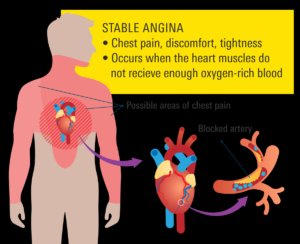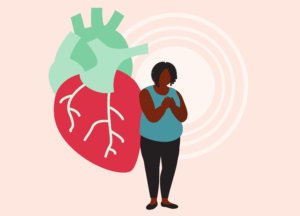If you or a loved one is experiencing chronic or severe heart pain, then make sure to see a licensed cardiologist, or heart doctor, as soon as possible. Residents in the area can schedule an appointment by calling Cardiovascular Specialists of York.
The Winter Heart and Its Cardiovascular Risks
Numerous studies have hinted at a link between colder months and a higher incidence of heart attacks. These studies touch on a few factors.
One contributing factor is the physiological response to cold temperatures. Exposure to cold can lead to blood vessel constriction, elevating blood pressure and putting additional strain on the heart. For individuals with existing cardiovascular conditions, these changes in vascular function may contribute to the onset of a heart attack.
Respiratory infections, prevalent during winter, also contribute to the seasonal spike in heart attacks. Infections like the flu can lead to inflammation and stress on the cardiovascular system, potentially acting as triggers for heart events in susceptible individuals.
Reduced exposure to sunlight during the winter months can lead to lower vitamin D levels, which have been associated with an increased risk of cardiovascular diseases. The intricate relationship between sunlight, vitamin D, and heart health adds another layer to the seasonal dynamics of heart attacks.
Furthermore, winter often brings about lifestyle changes that can impact heart health. Reduced physical activity, overindulgence in comfort foods, and weight gain are commonly observed during colder months. These factors can contribute to the development of risk factors such as obesity, high blood pressure, and diabetes, all of which increase the likelihood of a heart attack.
Finally, the winter season, encompassing holidays and family gatherings, can bring about increased stress. Stress is a well-established risk factor for heart disease, and the combination of emotional stressors during this time may contribute to a heightened risk of heart attacks.
Reducing the Risk of Heart Issues
Now that we understand the gravity of the situation, let’s explore some measures we can take to reduce the risk of a wintertime heart attack.
- Stay Active: Despite the colder weather, maintaining regular physical activity is crucial for heart health. Consider indoor exercises, such as brisk walking or workouts, to keep your cardiovascular system in good shape.
- Healthy Eating Habits: Be mindful of your diet, especially during the holiday season. Limit intake of high-fat and high-sugar foods, opting instead for a balanced diet rich in fruits, vegetables, and whole grains.
- Vitamin D Supplementation: If sunlight exposure is limited, consider taking vitamin D supplements after consulting with a healthcare professional. Adequate vitamin D levels are essential for overall health, including heart health.
- Manage Stress: Incorporate stress-reducing techniques such as meditation, deep breathing exercises, or engaging in activities you enjoy.
A Cardiologist Is the Expert in the Field
If you experience chronic or severe chest pain, it is imperative to seek immediate medical attention and consult with a licensed cardiologist for personalized advice and assessment. Prioritizing heart health through lifestyle choices is a year-round commitment that can contribute to a longer, healthier life.




